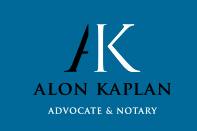
When seeking expert legal advice on wills and trusts, guarantee your estate is structured to protect assets and honor your wishes. Wills distribute your assets posthumously; trusts manage assets while providing privacy and avoiding probate. In Israel, wills follow the Succession Law 1965, requiring testamentary capacity and formalities. Trusts, whether private or charitable, offer control and tax benefits. Proper estate planning involves understanding legal nuances to safeguard beneficiaries and assets, enhancing your family’s future security. Explore more to enhance your understanding.
Key Takeaways
- Seek specialized legal counsel to ensure wills and trusts comply with applicable laws and provide desired asset distribution.
- Understand the privacy benefits and creditor protection offered by setting up a trust.
- Ensure testamentary capacity and proper formalities are met for will validity.
- Utilize irrevocable trusts for tax benefits and safeguarding beneficiary interests.
- Regularly update trust documents to maintain compliance and reflect current wishes.
Understanding the Basics of Wills and Trusts

Understanding the basics of wills and trusts is essential for effective estate planning. Wills are legal documents that specify how you want your assets distributed after death. They cover property allocation and care for minor children. Trusts, on the other hand, are legal entities that hold assets, managed by a trustee for the benefit of your chosen beneficiaries. Unlike wills, trusts can function during your lifetime or upon death, offering more flexibility. While wills basics require drafting, an executor, and witnesses, trusts require selecting a trustee and specifying asset management terms. Trusts provide privacy and can avoid the public probate process, unlike wills. Irrevocable trusts, for instance, are a type of trust that cannot be altered once created, which provides protection from creditors and potential estate tax benefits. In Israel, trusts are governed by a comprehensive set of laws that offer opportunities for tax benefits and confidentiality, as detailed in Alon Kaplan’s works on trusts and estate planning. Understanding these differences helps you choose the right approach for your estate planning needs.
Legal Framework for Wills in Israel
When planning your estate in Israel, the legal framework for wills is shaped by both civil and religious laws, creating a unique dual system.
The Succession Law, 5725-1965, governs wills and inheritance, allowing you to draft a will that reflects your wishes without forced heirship constraints. Different religious affiliations can affect inheritance laws, so understanding these nuances is vital. It’s important to note that inheritance laws can be complex, especially in cross-border scenarios, which may require additional legal guidance to navigate effectively. Consulting firms with expertise in cross-border inheritance matters can ensure that your estate planning accounts for international legal considerations.
Testamentary capacity is significant; you must be of sound mind when drafting your will to avoid inheritance disputes.
The probate process, managed by the Israeli Registrar of Inheritance Matters, verifies your will’s validity.
It’s wise to seek expert legal advice to guarantee your will aligns with Israeli laws, helping to prevent potential disputes and ensuring your estate is distributed as intended.
Key Elements of a Valid Will

After familiarizing yourself with the legal framework for wills in Israel, it’s important to contemplate the key elements that constitute a valid will. Testamentary capacity is essential; you must be an adult of sound mind, aware of your property and beneficiaries, and free from coercion. A declaration of intent should clearly express your wish to dispose of your estate post-mortem, guaranteeing it’s freely declared without pressure. Beneficiary designations need clarity, with assets explicitly allocated to avoid legal challenges. An executor appointment is necessary to administer your estate, with duties and powers outlined. Alon Kaplan Adv. is a recognized expert in trust and estate law and can provide guidance on ensuring your will meets all necessary legal requirements. Finally, adhere to formalities of execution: your will must be in writing, signed at the end, and witnessed to confirm validity. Absence of a valid will can lead to intestacy consequences, where your assets may be distributed according to state laws rather than your wishes. These elements collectively secure your will’s legitimacy.
Advantages of Setting Up a Trust
Setting up a trust offers several significant advantages that can enhance the management and protection of your assets.
Trust benefits include asset security by shielding your wealth from creditors and lawsuits, ensuring it’s preserved for beneficiaries. You gain financial flexibility as trusts allow for detailed control over asset distribution, adapting to changing circumstances without compromising your intent. Wealth preservation is achieved through tax advantages, potentially minimizing estate and income taxes. Privacy protection is another key benefit, as trusts avoid probate, keeping your financial affairs confidential and expediting asset transfer. Additionally, trusts address complex family dynamics, such as divorce or blended families, by customizing and controlling wealth distribution according to specific needs. Succession planning is simplified, ensuring smooth management of assets, especially essential for businesses. Finally, trusts provide creditor protection, safeguarding family wealth from financial threats across generations. In Israel, trusts are an integral part of estate planning, offering various methods of creation under the country’s legal framework.
Types of Trusts Available in Israel

While managing the complexities of estate planning in Israel, understanding the various types of trusts available is essential for effective asset management and protection.
Israeli law recognizes several trust types, including private trusts, charitable trusts, and testamentary arrangements, each serving distinct purposes. Private trusts focus on individual beneficiaries, while charitable trusts aim to support public causes. The absence of inheritance tax since 1981 reduces the perceived need for trusts in asset protection and estate planning, but an increase in High Net Worth families has heightened demand for effective wealth preservation tools. Israel’s legal framework provides modern legislation on inheritance and estate planning, making it an attractive option for wealth management.
Testamentary arrangements, created through a will, activate upon the settlor’s death. Foreign trusts offer international estate planning options, especially for assets outside Israel.
Tax implications vary based on trust classification, affecting both governance and tax responsibilities. The 2014 Israeli Tax Authority reform expanded conditions for trust residency, making most trusts taxable in Israel if they’ve an Israeli-resident beneficiary.
Understanding these nuances is vital for effective planning.
Role and Responsibilities of Trustees
In the domain of estate management, trustees play an essential role in upholding the integrity and purpose of a trust. Your trustee duties encompass fiduciary obligations requiring loyalty, good faith, and impartiality to beneficiaries. Effective asset management is critical, where you must prudently invest and separate trust assets from personal accounts while complying with legal responsibilities. Maintaining detailed record keeping is fundamental, guaranteeing accurate transaction documentation and trust administration. You must excel in beneficiary communication, providing transparent reporting and addressing concerns promptly to facilitate conflict resolution. Legal responsibilities demand adherence to trust terms and applicable laws, avoiding conflicts of interest or personal gain. As a trustee, you are also responsible for safeguarding assets for both the grantor and the beneficiaries, ensuring that all actions align with the trust’s objectives. Trusts and estate planning in Israel involve strategic use of legal instruments to provide advantages for international families residing in the country. Your role is to balance interests, protect beneficiaries, and guarantee trust objectives are met efficiently.
Avoiding Probate With Trusts

Trustees play an essential role in guaranteeing a trust’s integrity, and understanding how to avoid probate with trusts is equally important for efficient estate management. By shifting ownership to the trust, you can avoid probate entirely. Proper trust funding is vital; assets must be retitled or moved into the trust to guarantee they’re not part of the deceased’s estate. This direct transfer allows beneficiaries to receive assets swiftly, typically within days or weeks, bypassing lengthy court procedures. Trusts also provide asset protection, keeping your estate private and shielded from public records. Remember, not all assets are automatically covered. Regularly update trust documents and consult a professional to guarantee compliance with state laws, safeguarding your estate from unnecessary probate complications. It’s important to note that while revocable trusts offer many benefits, they do not provide creditor protections, which means that assets in a revocable trust can still be accessed by creditors as if they were owned directly by the grantor.
Estate Planning Strategies in Israel
Effective estate planning in Israel requires a thorough understanding of the diverse legal and tax factors unique to the region. You must address cross-border implications, especially when managing assets spread across countries. Israel acknowledges four types of wills, vital for guaranteeing proper documentation and compliance with national laws. It’s imperative to take into account tax strategies, as Israeli and US heirs face differing capital gains taxes. Engaging a legal professional specializing in international estate law is advisable to navigate these complexities. While Israel doesn’t impose inheritance tax, beneficiaries might face taxes abroad. The absence of a will leads to the division of assets according to Israeli inheritance law, which dictates that half go to the spouse and the other half to the children. The upcoming 2025 tax reforms, which impact VAT and capital gains, necessitate a strategic review of property transactions to optimize your tax position. Proper documentation guarantees smooth asset transfers. For expert guidance, you can consult with Advocates and Notaries such as Alon Kaplan and his team located in Tel Aviv.
Protecting Beneficiaries and Assets

While safeguarding beneficiaries and assets is a fundamental aspect of estate planning, understanding the mechanisms available can greatly enhance protection.
Utilizing irrevocable trusts is a key strategy for beneficiary protection and asset segregation. These trusts prevent the alteration of terms, ensuring assets are shielded from future creditors and legal claims. By segregating assets, you can protect beneficiaries during events like divorce. Trust-based asset protection planning involves irrevocable trusts which are essential for safeguarding trust property and offer flexibility and protection for personal and inherited assets.
Additionally, structured inheritances and powers of attorney manage financial interests, preventing irresponsible handling of assets by minors or inexperienced heirs. Provisions for charitable giving can also minimize taxes, indirectly benefiting heirs.
Navigating Inheritance Laws in Israel
Guiding through inheritance laws in Israel can be complex, yet a thorough understanding of the Succession Law of 1965 is vital for ensuring proper estate distribution. When no will is present, intestate succession dictates how assets are allocated. The law prioritizes the spouse and children as primary heirs, followed by parents and siblings if necessary. Estate management plays a significant role, especially with debts or disputes. An estate manager may be appointed to address these issues, ensuring that assets are distributed according to legal requirements. While Israel doesn’t impose inheritance tax, understanding the legal framework helps prevent conflicts. Heirs are not responsible for debts beyond the estate’s property before the probate process is complete, which can provide some financial peace of mind for those inheriting the estate. Probate processes may involve court intervention to validate wills or manage estates, ensuring lawful asset distribution.
Frequently Asked Questions
How Can I Change an Existing Will or Trust?
To change an existing will, you can create a codicil for minor modifications or write a new will for thorough changes.
Verify the new will revokes previous ones.
For trust amendments, review the trust document for amendment provisions, then draft the changes following those guidelines.
Always follow state-specific laws for execution, guaranteeing impartial witnesses.
Keep modifications organized with the original documents to avoid disputes and maintain clarity.
What Are the Costs Involved in Creating a Trust?
Creating a trust involves various costs. Legal fees for trust creation can range from $1,000 to $3,000, with complex estates potentially exceeding $5,000.
Online services offer cheaper alternatives, costing $100 to $1,000, but provide limited advice. DIY options are even less expensive, around $50 to $100, yet require knowledge to avoid errors.
Additional expenses include administrative fees, trust funding, and trustee fees, which impact the trust’s overall cost and maintenance.
Can Digital Assets Be Included in a Will or Trust?
Did you know that 63% of Americans haven’t accounted for digital assets in their estate plans?
You can include digital assets in a will or trust, but it’s essential to follow digital inheritance laws and adopt estate planning strategies that specify access rights and disposition.
Without explicit instructions, these assets might be inaccessible.
Make certain your estate plan lists digital accounts, login details, and specific instructions to guide heirs or trustees effectively.
How Often Should Wills and Trusts Be Reviewed?
You should review your wills and trusts every 3 to 5 years for effective will updates and trust evaluations.
Annual reviews are advised for better protection, especially if your situation changes often.
Even without significant life events, periodic checks confirm your documents comply with current laws and reflect your wishes.
Regular reviews keep your estate plans aligned with legal developments and personal circumstances, maintaining clarity and accuracy in asset distribution and management.
What Happens if a Trustee Fails to Fulfill Their Duties?
If a trustee fails to fulfill their duties, you should be aware that there are significant legal consequences.
Trustee responsibilities include acting impartially, managing assets prudently, and communicating effectively with beneficiaries.
Failure to meet these standards can lead to legal liability, removal by the court, and financial penalties.
Beneficiaries can take legal action, and courts may intervene to protect trust assets.
Accountability is essential, as negligence or mismanagement can damage a trustee’s reputation.
Conclusion
In the intricate tapestry of estate planning, wills and trusts serve as essential threads, weaving together your intentions and the future security of your beneficiaries. By understanding the legal framework in Israel, you guarantee your wishes are respected and assets protected. Trusts, like sturdy vessels, navigate the complexities of inheritance laws, avoiding the turbulent seas of probate. Embrace these strategies to safeguard your legacy, guaranteeing it passes smoothly to those you cherish, like a well-tended garden flourishing through time.

